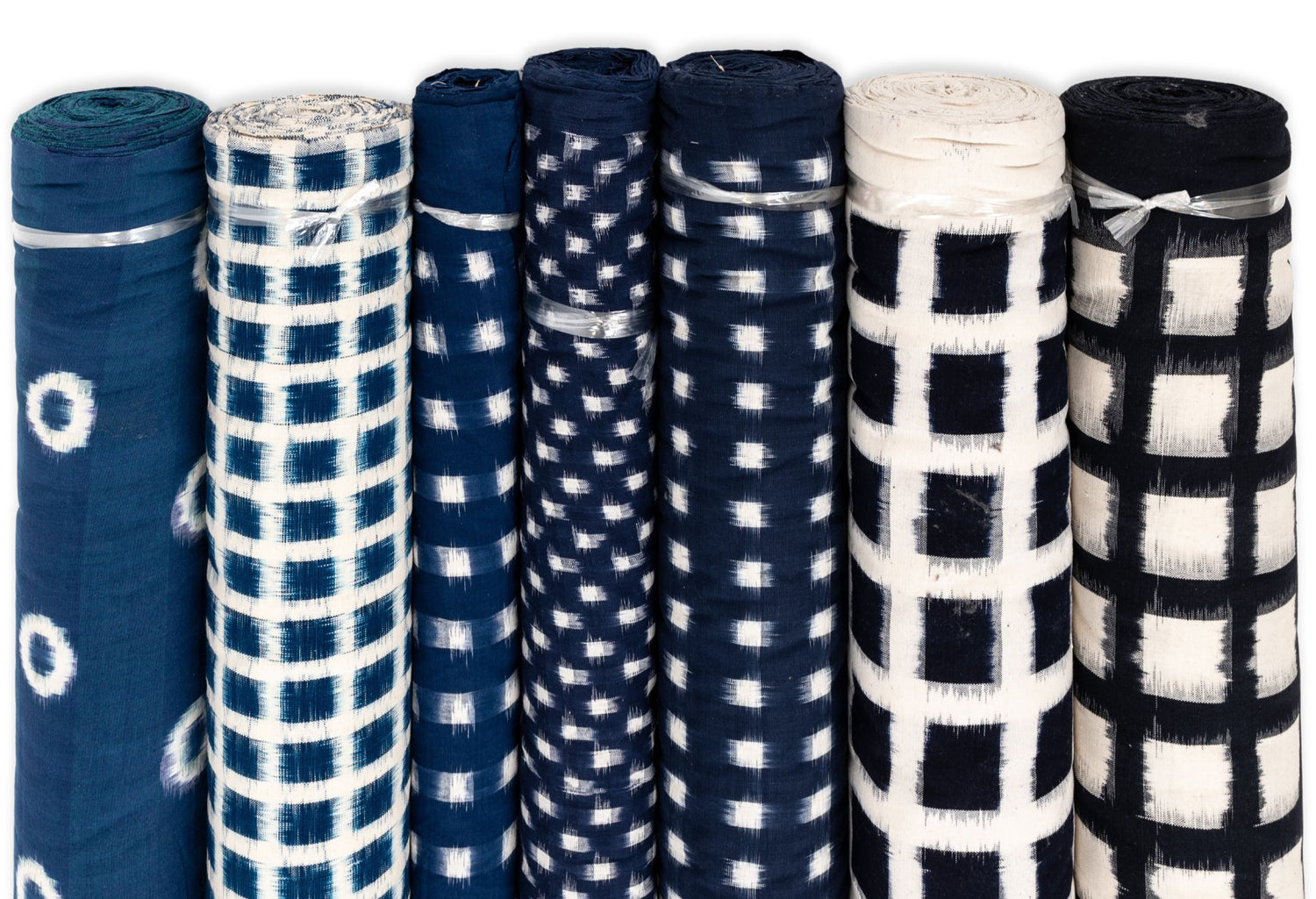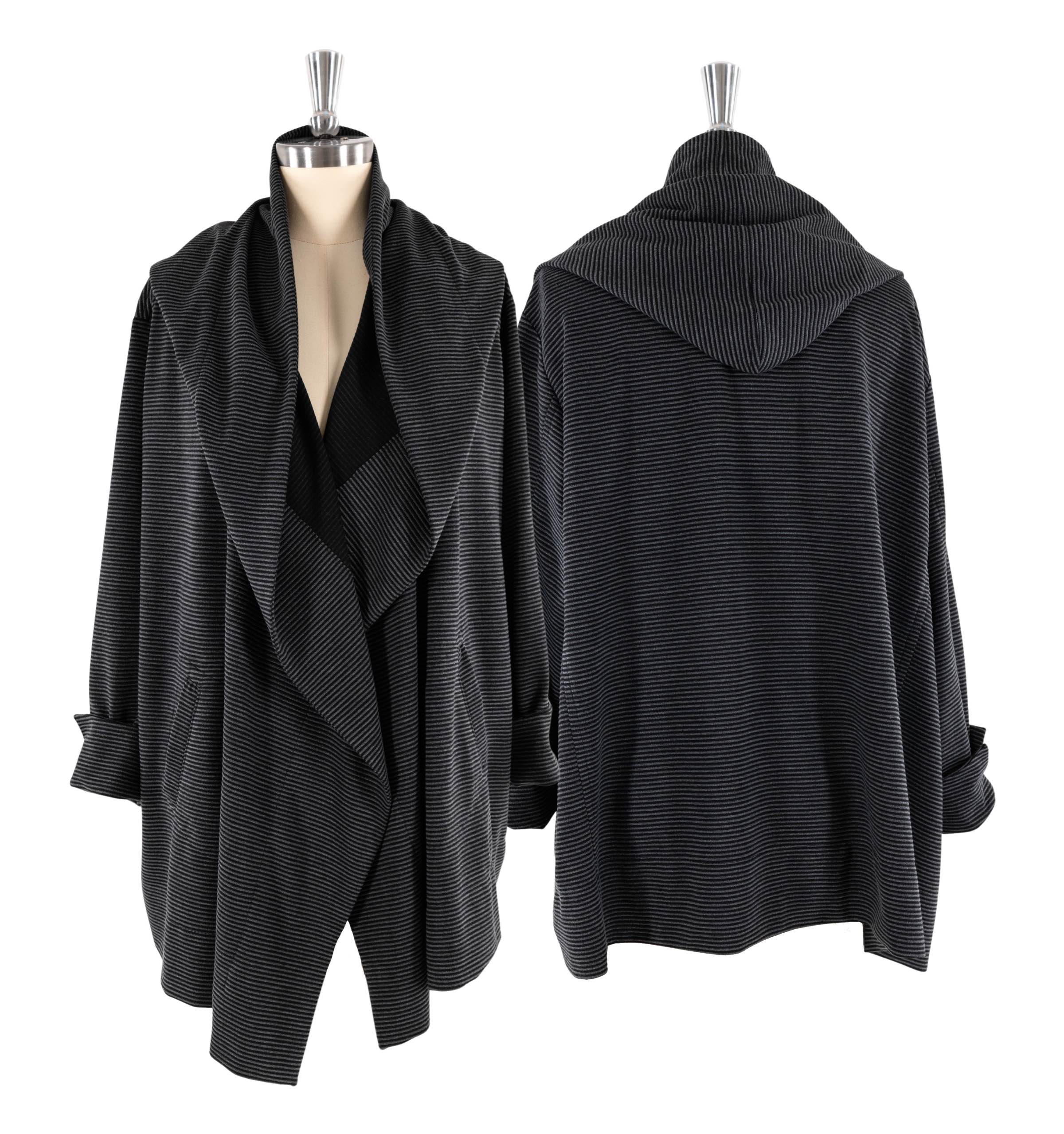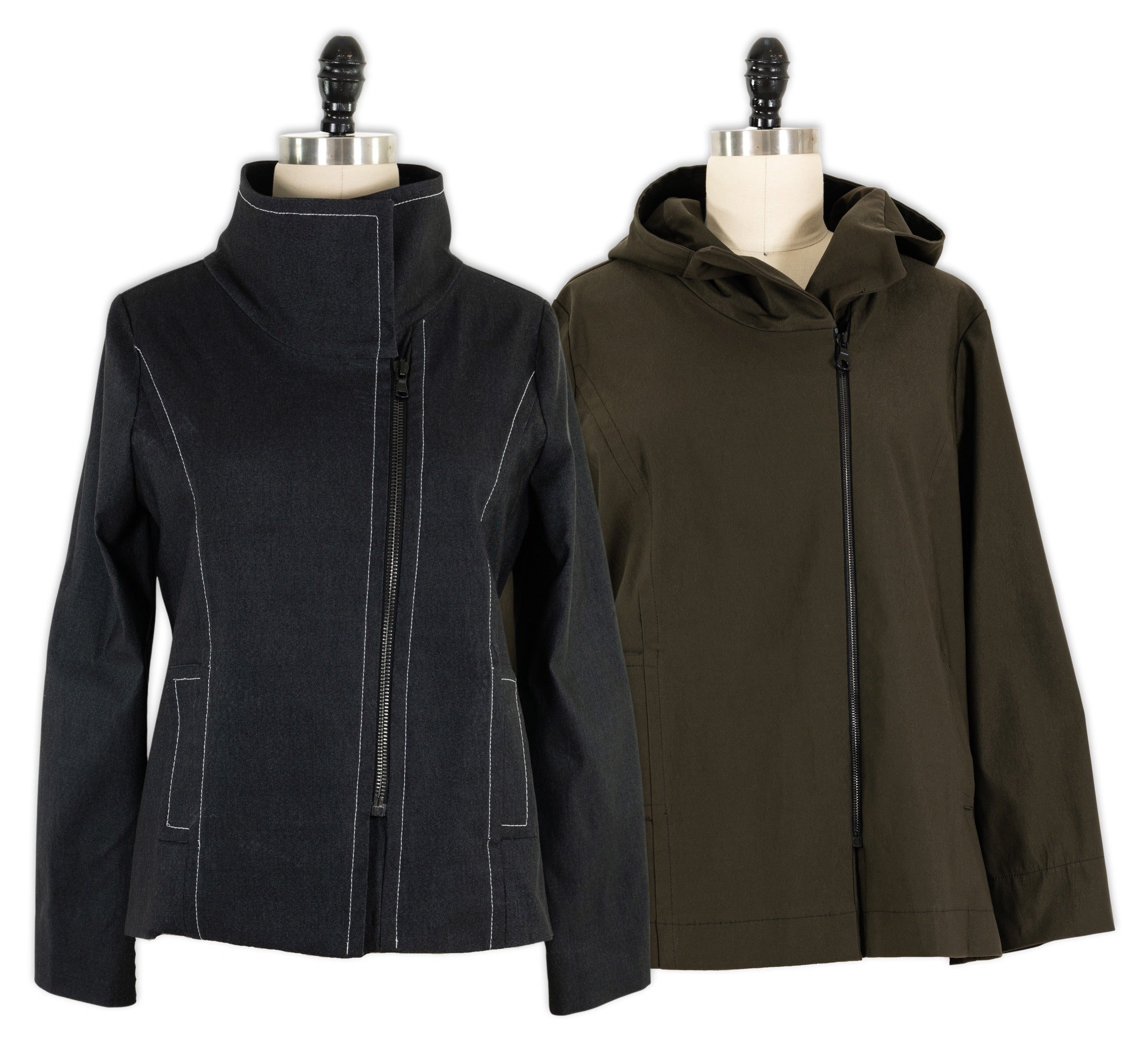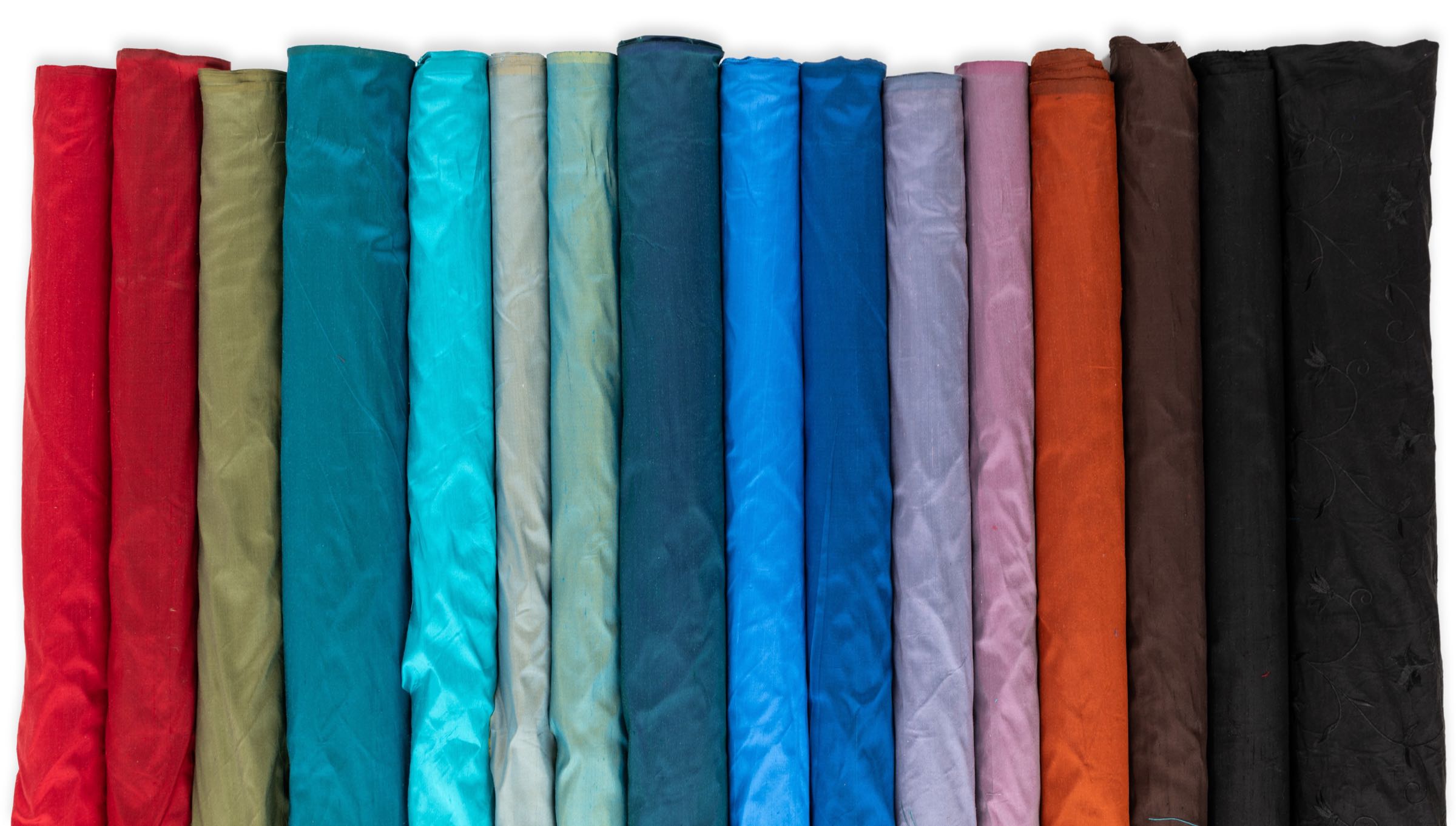
McQueen
In the world of designer deadstock, fabric from Alexander McQueen is almost never seen in the wild—which is why we’re thrilled to bring you two fabrics from fashion royalty.

Cozy Chic Tunic
Butterick 6520, an out-of-print pattern by Katherine Tilton, made with one of our Danish fleece knits.

Denim Edit
Butterick 6381 made with Black Juniper, one of a pair of double-sided denim deadstock from Italy. Black Fern is the same base fabric in a different colorway. Check out more views of the garment.
Core Wardrobe

Elegant Ottomans
A trio of silky lustrous fine-grained mini ottoman wovens in Caramel, Coffee, and Onyx.
Explore collections curated by Marcy.

Cozy Asymmetrical Dress
Flattering and SO comfortable, Katherine's dress B6784 works perfectly a solid color French Terry. The fabric is soft and cozy on the inside, and the malleable drape is right with the sculptural seaming which Katherine emphasized with a simple running stitch in contrasting thread. Part of Marcy's Fall 2025 Core Wardrobe.


Haute Hoodie
Vogue 9244 by Marcy Tilton is a beautifully shaped, feminine hoodie sewn here in Blue Angel, a Dutch cotton French terry, part of her Fall 2025 Core Wardrobe. Made directly from the pattern, the only modification was to line the hood with the self fabric, as the reverse side is white. This French terry is exceptionally soft and supple, and it’s also available in two other prints: Rainbow Leaves and Blue Poppies.



























































































